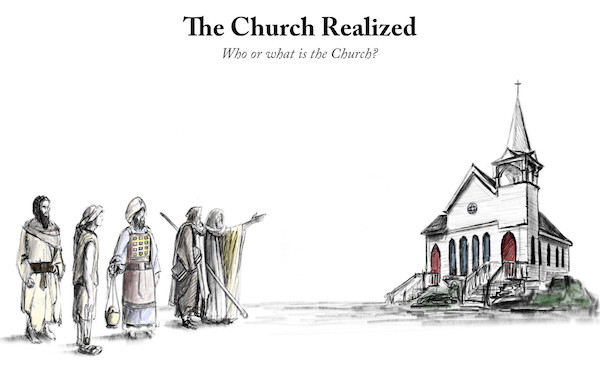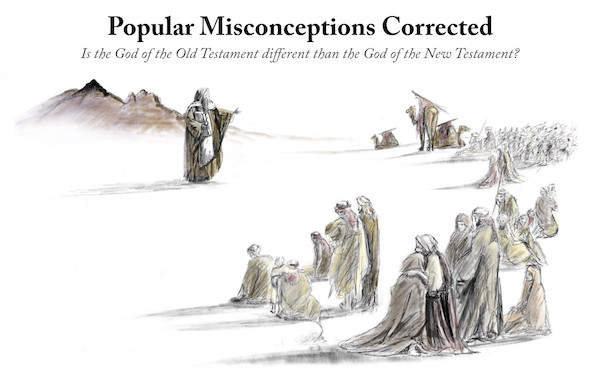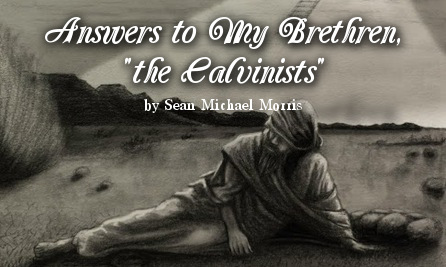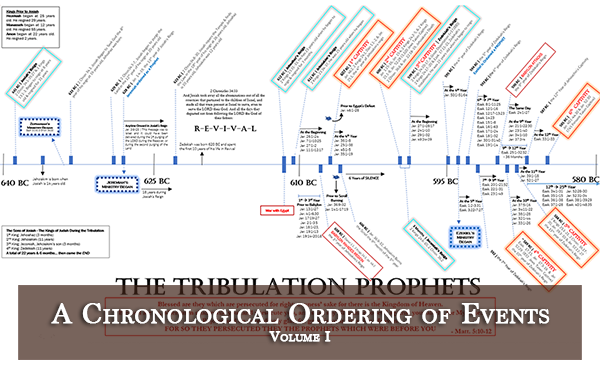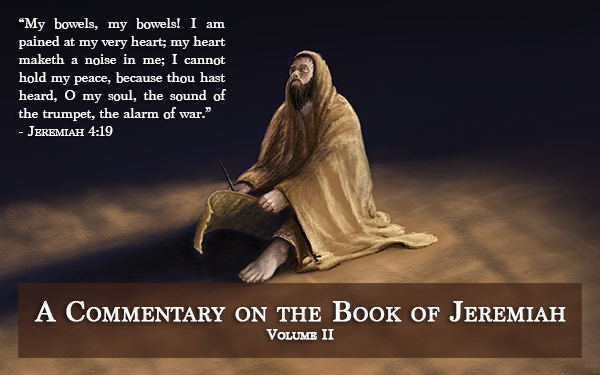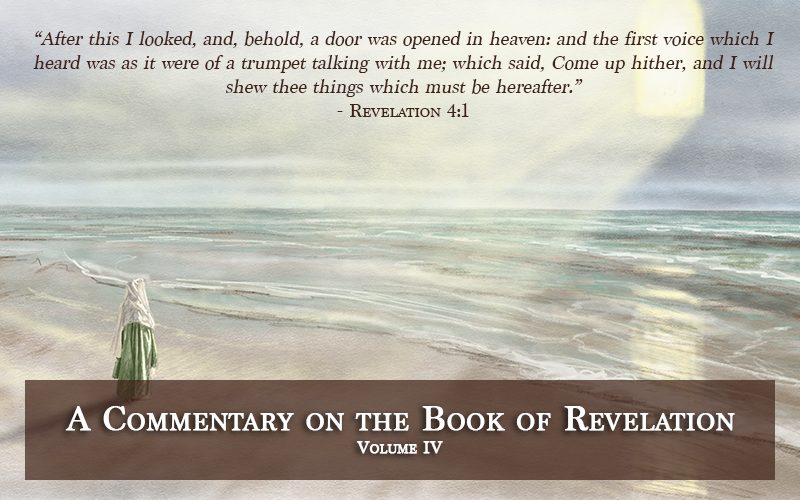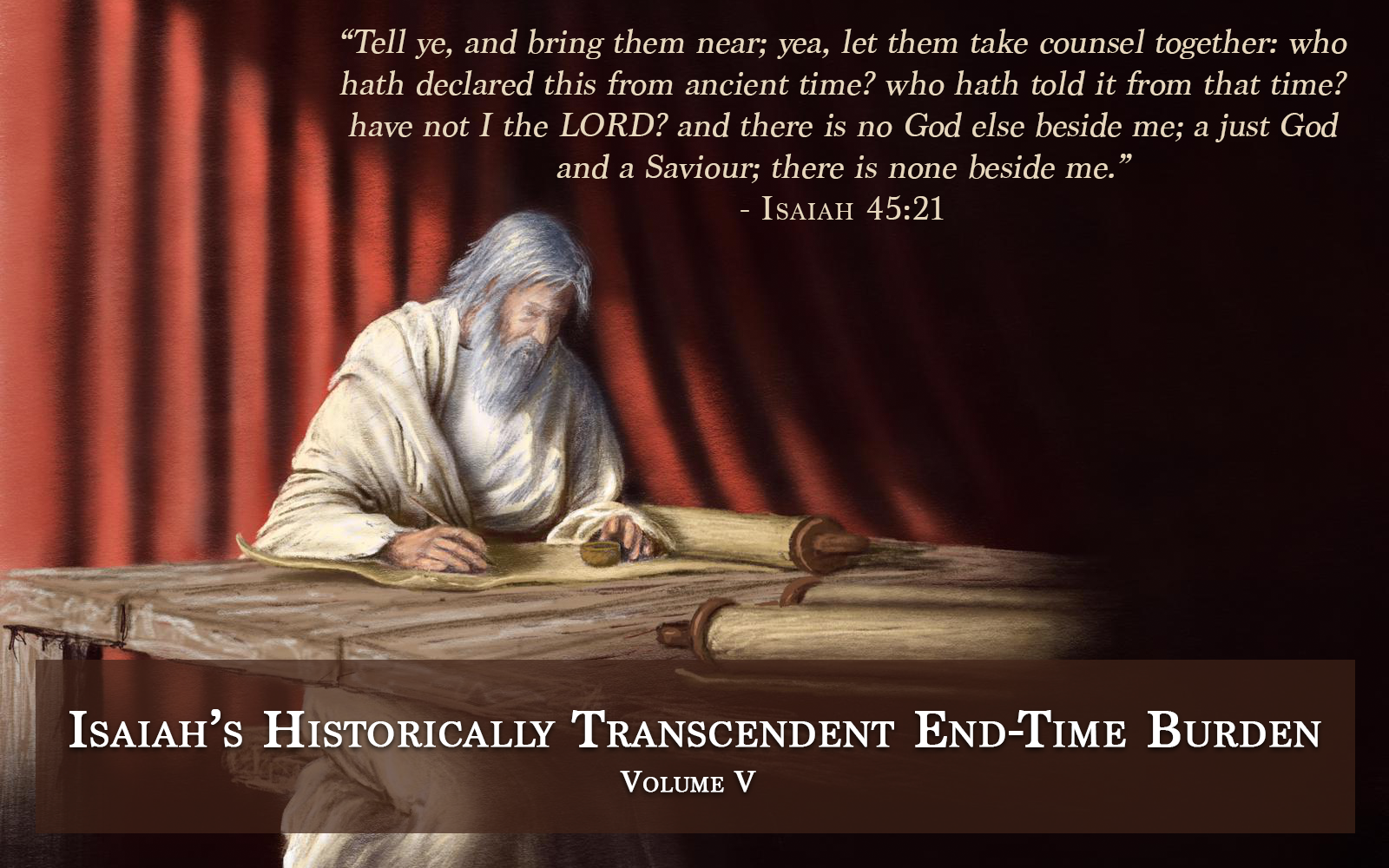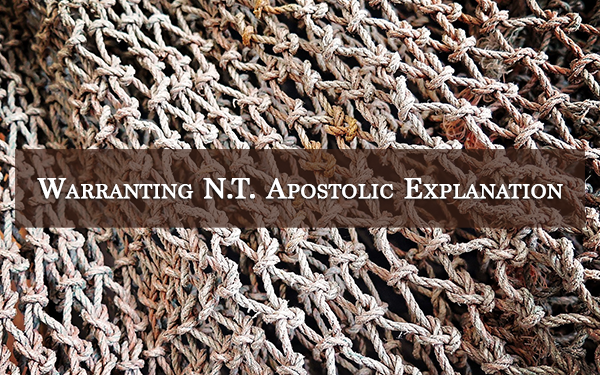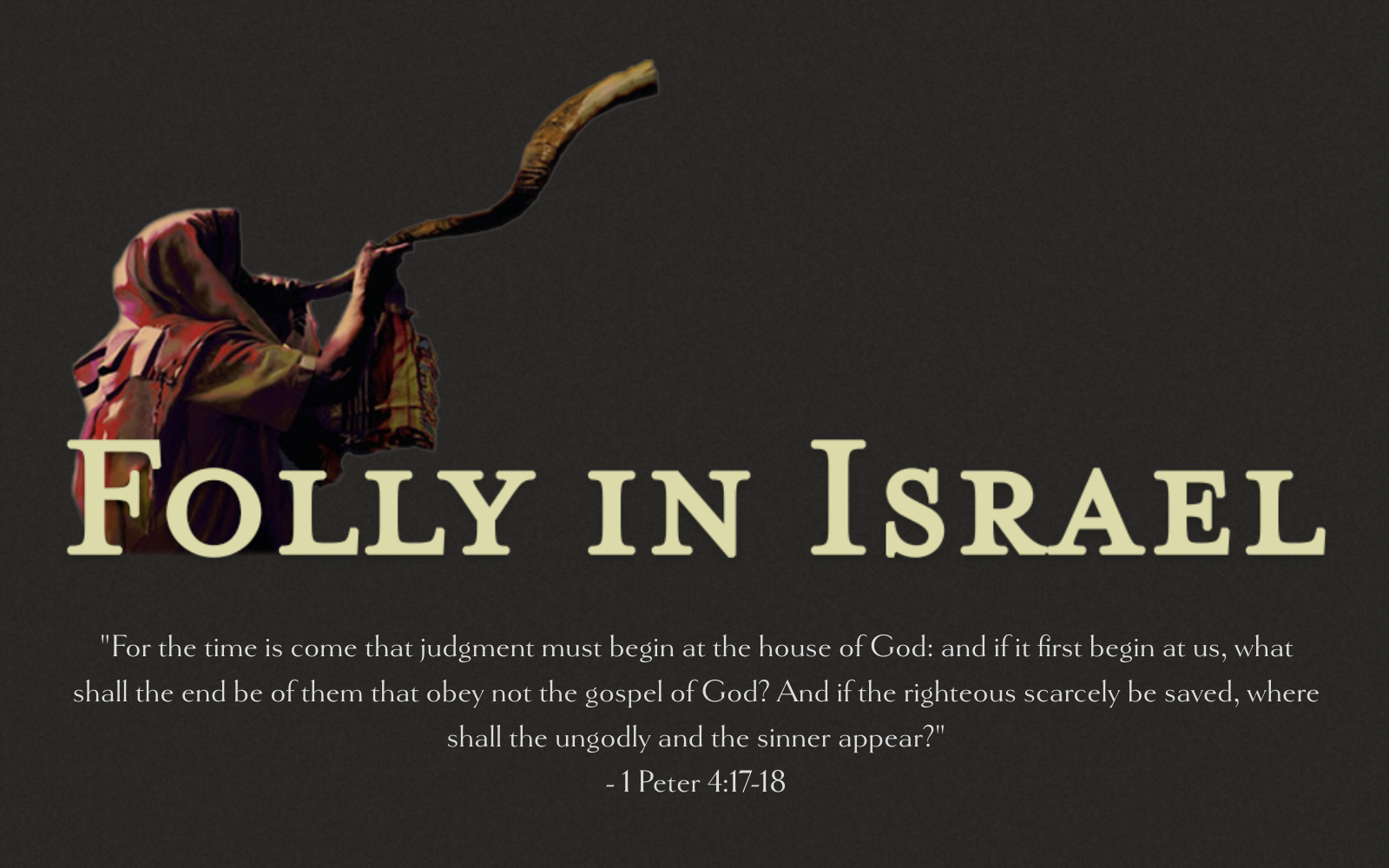|
--> Note: This document can be found online in Chapter #10 of Volume 2, titled, Popular Misconceptions Corrected. |
The Sermon on the Mount
Misconceptions of Jesus Christ’s Reformation
Old Testament Righteousness & Regeneration - in summary
Misconceptions of Jesus Christ’s Reformation
Old Testament Righteousness & Regeneration - in summary
|
According to scripture, there are two separate categories of lifestyle which do characterize all mankind: Ignorant Sinners and Willful Sinners. With certainty, those who live a lifestyle free from the continuance of “willful sin” do so by the enablement of the Holy Ghost via regeneration. This is an observable fact, apparent in the Old and New Testaments made between God and man. We can understand, therefore, that these two categories of human lifestyle do contrast in equal proportion to the differing heart-conditions within mankind. In other words, what is displayed outside of the man is representative of what is inside of the man, according to the scripture. For example, it was written,
|
|
It is easy for some people to consider “the Law” as a yoke of mere ceremonies, something kept-up by carnal men without the empowerment of the Holy Ghost. This was impossible, for, not even the ceremonies of the Law could be kept without the Holy Ghost (see The Gospel Calling)! Once this principle is understood, it is not hard for us to understand that, furthermore, a man cannot keep the Moral Law without the empowerment of the Holy Ghost. We, the saints of the New Covenant, must KEEP the Moral Law like as all true Jews of pastime, and though this does not mean sinless perfection, it does mean a life of radical obedience! For this reason it was written,
|
|
The contextual foreground of Romans 2:28-29 does specifically identify the accomplishment of inward salvation which is “of the heart” and “in the Spirit”, and what is it? Verses 25-27 declares it very plainly: Inward salvation is identified by those who do “by nature fulfill the Law”, which means that they do “keep the righteousness of the Law”. This is the expressed meaning of what it is to be a Jew inwardly. To be a Jew, meant, a man kept the Law inwardly – thanks be to God’s amazing grace! Salvation exists in the New Testament for the very same accomplishment, “that the righteousness of the Law might be fulfilled in us, who walk not after the flesh, but after the Spirit” (Rom. 8:4, 2:13, 6:12, 6:16, 13:8, 15:18, Gal. 5:7, 24, 6:7-9; for more information see Legalism: Law, Grace, and Works).
It is needful for us to understand salvation in the Old Covenant, my reader. Those who were able to keep the ceremonies of the Law by faith (i.e. believing in the Gospel), as God did originally intend, they were thereby enabled to keep the Moral Law by faith (through the empowerment of the Holy Ghost). In this order and by these means, saving grace was administered and experienced! Therefore the OT Moral Law was and is a standard of morality which was impossible to “fulfill” without the Holy Ghost via regeneration (Rom. 8:2-4). If this were not so, inward Jews would not have existed until the New Covenant. If this were not so, a man would have never kept the Law inwardly and by nature until the New Testament dispensation. Therefore because this is so, God spoke of many a man who found favor in His sight. For example, Noah was a “just man and perfect in his generations, and Noah walked with God” (Gen. 6:9). Abraham “believed in the LORD; and HE counted it to him for righteousness” (Gen. 15:6). Abraham walked before God (Gen. 17:1-2, 48:15) and feared God (Gen. 22:12). He was even called “the friend of God”, and for good reason (Gen. 18:17-19, James 2:23)! Abraham was a man who was obedient to God’s voice (Gen. 22:16-18). The Lord Jesus understood that Isaac and Jacob followed in Abraham’s footsteps. Signifying this, the Lord said, “many shall come from the east and west, and shall sit down with Abraham, and Isaac, and Jacob, in the Kingdom of Heaven” (Matt. 8:11). Furthermore, Job was a “man that was perfect and upright, and one that feared God, and eschewed evil” (Job 1:1). Yes, and, according to scripture, Job was the most righteous man in all the earth during his time (Job 1:8, 2:3)! He was a man full of the Holy Ghost, truly! Thus he lived a lifestyle of utter obedience to God’s commandments (see the Christ-like description of Job’s life before he fell into sin during the trial of his faith - Job chapter 29). A host of other witnesses could be mentioned (see Hebrews 11, for example) but the point is clear: All these men, like Zacharias and Elisabeth, were “righteous before God, walking in all the commandments and ordinances of the Lord blameless” (Luke 1:6). Misconceptions of Jesus Christ’s Reformation According to Hebrews 9:10, Christ came to bring a “reformation”. This is undoubtedly true, but what was reformed? And, in what way exactly? Jesus Christ was careful to speak directly on this matter, lest we misunderstand the purpose of His reforms. The Lord Jesus said, “Think not that I am come to destroy the Law, or the prophets: I am not come to destroy, but to fulfill. For verily I say unto you, Till heaven and earth pass, one jot or one tittle shall in no wise pass from the Law, till all be fulfilled. Whosoever therefore shall break one of these least commandments, and shall teach men so, he shall be called the least in the Kingdom of Heaven: but whosoever shall do and teach them, the same shall be called great in the Kingdom of Heaven” (Matt. 5:17-19). This is a staggering opening to His most famous sermon in recorded history! Nevertheless, mind you, my reader, His point spoken was not a point well understood. The Jews did not understand what He was saying! They did not but we can, with the help of the Spirit of God… will you hear it, my reader? With all things understood and every mystery unveiled, Christ came to fulfill the Law – on earth, in heaven, and in us – both the ceremonial and the Moral Law! Even though this is the truth, it is not apparently true to the unlearned reader of the New Testament. Take for example, “The Sermon on the Mount” in its entirety.
When reading Matthew chapters 5-7 it appears that Jesus Christ was seeking a reformation from the Law in the sense that He was in disagreement with the Law. When the Lord said six different times, “Ye have heard that it was said by them of old time”, quoting the Law (Matt. 5:21, 27, 31, 33, 38, 43), it appears that he is disagreeing with what the Law said, but in fact, on the contrary, the Lord Jesus was quoting the “common-place” interpretation of the Law which had been disseminated by false Judaism in that woeful generation. Though Christ was quoting the Law, he was not disagreeing with the Law (Note: these six references to the Old Testament bring in view the Moral Law and not the Ceremonial Law). I say again, the Lord Jesus was denouncing the popular misinterpretation and declaring the true interpretation, quoting the Law as a reference point to what they have heard in comparison to what actually is! Generally speaking, the commonplace understanding of the Law in the 1st century popular Judaism was, shockingly, in utter oblivion to The Spirit of the Law, therefore what the people did hear (“Ye have heard”) all throughout their lifetime was not a true interpretation of the Law. The Spirit of the Law: to “fulfill the Law… by nature” (Rom. 2:27) The Jewish leaders (the Pharisees and Sadducees) were not born again of the Spirit of God and, thus, how could they see the correct interpretation of the Law? The Pharisees did not see or understand The Spirit of the Law because they did not have the Spirit of God! For, verily, “the Law is spiritual” (Rom. 7:14), a converted Pharisee declared. Those who profit from the Law do, by necessity, have spiritual ears to hearken to what man cannot naturally understand or perceive! “But the natural man receiveth not the things of the Spirit of God: for they are foolishness unto him: neither can he know them, because they are spiritually discerned” (1 Cor. 2:14). Christ was not bashful to declare this ancient truth, no! While rebuking the mass multitude of unconverted and heretical Jews, the Lord said, “He that is of God heareth God’s words: ye therefore hear them not, because ye are not of God” (John 8:47; for a more detailed explanation of “The Spirituality of the Law” please follow the link). All this being said, what “reformation” did Christ come to bring? In short, He came to fulfill the ceremonial Law in Heaven once and for all, so that He might fulfill the moral and typological applications of the Law in His people, the Church. All this being said, Christ did not come to disagree with six different moral commandments of Old Testament Law. Rather, He came to declare the correct application of those six moral commandments in their true interpretations, spiritually speaking, contrary the popular heresy which was helping to damn the multitudes. For example, consider the first of six which Christ addressed:
Old Testament MORAL COMMANDMENT #1
|
|
Christ was not speaking against the Law so as to reform it. My reader, do you see how the offender that is depicted here is commended to seek atonement by a “gift before the altar” after all necessary repentance and restitution was performed (Matt. 5:23-24)? This was contextual to Jewish society, justice, and rule (a rule whereby God reigned as KING through men). The offender of the Law stood threatened by physical and spiritual judgment, by God-appointed Judges on earth and the Lord’s judgment in heaven, exactly as the Law demanded (Matt. 5:22, 25-26). Judges were appointed throughout Israel for all matters of Law-breaking (minor and major), and thus the scripture speaks of being in danger of both judgment and councils (Deut. 1:16, 16:18-22, 19:17-18, 25:1). All controversies of Law-breaking were pointed toward the earthly Judges (Ex. 21:6, 21:22, 22:8-9, Num. 25:5). Upon their judgment all punishment would transpire, and in the case of civil disobedience to the Judges the death penalty was warned (Deut. 17:8-13). Therefore with the grounds of Israelite judgment so clearly placed into position so as to uphold all justice, there must be witnesses for every un-confessed crime. The witnesses of any crime (sin) committed were of vital importance (Duet. 19:15). Seeing that power to kill resided in the Judges verdict of every accusation, witnesses must be honest and true. In the case that a man was incriminated by a false accusation, retributive judgment was returned upon his own head to the same degree he thought to condemn another (“Then shall ye do unto him, as he had thought to have done unto his brother: so shalt thou put the evil away from among you” – Deut. 19:19).
With the former contextual foreground in place the situation depicted in Matthew 5:21-26 is simplified. The Lord Jesus was not disagreeing with the Moral Law. No, He was not nullifying it or reforming it even though it may appear that He is. As a new believer I once thought this way. At first glance it does appear that Christ was disagreeing with the moral commandment of the Law by saying, “But I say unto you” (Matt. 5:22). It does seem like the Lord was contradicting the Law because He believed it is too shallow. Therefore (in this view), Christ spoke out in contradistinction to the Law so as to deepen the application and extend the warning. Thus He does not condemn the act of murder, merely, but the thought of murder (which is anger) and the words of murder (which is “Raca” and “Thou fool”). At first glance this is a compelling interpretation, but with all things considered it is an impossible interpretation! The former interpretation is based upon the premise that the Law does NOT condemn anger (“angry with his brother”), railing and reviling (“whosoever shall say to his brother, Raca”), and murderous incrimination (“whosoever shall say, Thou fool”). This is not the case! “whosoever is angry with his brother without a cause shall be in danger of the judgment” Anger is explicitly forbidden and condemned in Leviticus 19:15-18. As you read it, take in the whole heart of the passage. It is written, “Ye shall do no unrighteousness in judgment: thou shalt not respect the person of the poor, nor honour the person of the mighty: but in righteousness shalt thou judge thy neighbour. Thou shalt not go up and down as a talebearer among thy people: neither shalt thou stand against the blood of thy neighbour: I am the LORD. Thou shalt not hate thy brother in thine heart: thou shalt in any wise rebuke thy neighbour, and not suffer sin upon him. Thou shalt not avenge, nor bear any grudge against the children of thy people, but thou shalt love thy neighbour as thyself: I am the LORD” (Lev. 19:15-18). Apart from the regenerating power of God’s grace through the indwelling of the Holy Spirit, obedience to this was impossible. The manner of behavior which was obedient to this passage depicts a profound work of God’s grace! Furthermore, and, as further confirmation, anger, hatred, and grudges were condemned in the New Testament just like it was condemned in the Old Testament – with no reformation (Matt. 6:14-15, James 5:9, Gal. 5:19-21). [Note: If a man was angry with his brother without a cause and it led him to commit an act of harm or injury to his fellow brother, he would be endangered of the judgment (the assembly of judges which consisted of 23 men in 1st century Judaism).]
“whosoever shall say to his brother, Raca” Those who were angry with a righteous cause were apt to act in temperance and self-control, being guided by the Spirit of God (2 Tim. 1:7). Those who were angry “without a cause” were apt to act upon that anger immorally, seeing that they were inflamed with the fires of iniquity (Prov. 14:17, 22:24, 29:22). “A fool uttereth all his mind: but a wise man keepeth it in till afterwards” (Prov. 29:11). If a man durst not act upon physical violence or plots of murder for fear of the civil magistrates, he would be more likely to spew out defaming insults and slanderous accusations. Titles of honor or defaming insults in Jewish culture were connected to the moral standing one had according to the Law. Therefore to insult someone, the reviler would attack a man’s good reputation and good standing according to the Law. This means that for Israelites, insults were more like accusations - accusations of sinful or Law-breaking behavior. Therefore for someone to say to his brother, “Raca”, he was endangered by the Law which forbade false witnessing (Ex. 20:16, 23:1, Deut. 5:20, Prov. 19:5, 9, Prov. 21:28, Deut. 19:15-21). In proportion to any false accusation the reviler was to suffer, and if after repeated chastisements he was not corrected, he died (Num. 15:28-31). Remedial chastisements were a part of life in Israel, as it was written: “A fool’s lips enter into contention, and his mouth calleth for strokes” (Prov. 18:6). In the New Testament the verdict is explicitly stated, “revilers” and “railers” are doomed to hell (1 Cor. 6:9-10, 5:11-13), and “all liars shall have their part in the lake which burneth with fire and brimstone” (Rev. 21:8). [Note: If a man is contemptuous and injurious so as to rail and revile, by means of false witnessing or false accusation, the proportion of his punishment would equal the magnitude of his false accusation. He, being brought before the council to be judged, was thus brought into the danger of the council (the assembly of judges known as the Sanhedrin which consisted of 72 men in 1st century Judaism).]
“whosoever shall say, Thou fool” Is there hope for a fool? Scripture states, “Seest thou a man that is hasty in his words? There is more hope of a fool than of him” (Prov. 29:20). According to Adam Clarke, “This term implied, among the Jews, the highest enormity, and most aggravated guilt.” This term was equivalent to calling someone an apostate (Psalm 14:1, 53:1) or a wicked man. According to the Jews, all such men were judged to die. Literally speaking, fools die (1 Sam. 26:21, 2 Sam. 3:33, Prov. 10:8, 23, 18:7)! Every Israelite knew it, but do we? My reader, inhale the thoughts of God on the matter: “A fool’s wrath is presently known” (Prov. 12:16), “a fool layeth open his folly” (Prov. 13:16), “the fool rageth and is confident” (Prov. 14:16), and finally, “Let a bear robbed of her whelps meet a man, rather than a fool in his folly” (Prov. 17:12)! Yes. For this reason fools died! They were abominable apostates beyond all hope of correction or help of remedial punishment!
Fools ended up digging their own grave by false witnessing, lying, slandering, and reviling. Their hatred and anger drove them to the very gates of judgment! Why? Because if a false accuser incriminated another man, saying, “Thou fool”, a fools death he would die! To accuse the innocent with accusations of apostasy, was apostasy! Apostasy, or to be a “fool”, was a condition which was punishable by death (see Deut. 19:15-21), a condition obtained by punishable iniquity, therefore if someone falsely accused a man of crimes which pertained to a fool in the heat of his anger, this was to impose upon the accused the danger of death (enforced by the council). If the accusation was found to be false then the accuser would have died! It was written, “The Judges shall make diligent inquisition: and, behold, if the witness be a false witness, and hath testified falsely against his brother; Then shall ye do unto him, as he had thought to have done unto his brother: so shalt thou put the evil away from among you. And those which remain shall hear, and fear, and shall henceforth commit no more any such evil among you. And thine eye shall not pity; but life shall go for life, eye for eye, tooth for tooth, hand for hand, foot for foot” (Deut. 19:18-21). Perhaps now we can understand why it was written by Solomon the Wise, “A fool’s mouth is his destruction, and his lips are the snare of his soul” (Prov. 18:7), and again, “He that hideth hatred with lying lips, and he that uttereth slander, is a fool” (Prov. 10:18). Old Testament MORAL COMMANDMENT #2 |
|
Was the look of lust forbidden by the Old Testament? Yes. It was written, “Lust not after her beauty in thine heart; neither let her take thee with her eyelids” (Proverbs 6:25). If the OT Law which Christ quoted did exclusively forbid the outward act of adultery (without condemning the inward thought of adultery), then Matthew 5:27-30 existed as a reformatory statement. As you can see by Proverbs 6:25, this was not the case. The Law did not merely forbid the look of lust. The Law required far more than mere self-denial! According to Proverbs 5:15-19, God required nothing less than a heart aflame with divinely empowered passion (“Song of Solomon” passion!) whereby a man would LOVE his own wife with intense loyalty and fidelity! Oh, my reader, loyal eyes do pale in comparison to a loyal heart! Therefore it was written, “Let thy fountain be blessed: and rejoice with the wife of thy youth. Let her be as the loving hind and pleasant roe; let her breasts satisfy thee at all times; and be thou ravished always with her love” (Proverbs 5:18-19). A true saint of God in the Old Testament lived a lifestyle far from the heart-adultery of wicked men! They freely confessed, “I made a covenant with mine eyes; why then should I think upon a maid?” “I will set no wicked thing before mine eyes: I hate the work of them that turn aside; it shall not cleave unto me” (Job 31:1, Psalm 101:3). They were not bound to the animal-like passions of depravity. No! They gazed upon the luster of God’s immortal majesty! “To behold the beauty of the LORD”, was their chief desire (Ps. 27:4)! God said, “keep My Law as the apple of thine eye”, and they were happy so to do (Prov. 7:2)!
Old Testament MORAL COMMANDMENT #3
Old Testament MORAL COMMANDMENT #3
|
|
Yet again, and, for the third time, Christ defended and confirmed the true teaching of the Law! The 1st century Jews were monsters of adultery! This “adulterous and sinful generation” needed a decrying voice in conflict with their widespread heresies (Mark 8:38). Thus, did their persecuted Messiah declare, “But I say unto you”! The Pharisees misinterpreted the grounds of Lawful divorce taught in the Law (Deut. 24:1-4). They broadened the grounds to make room for their wicked lusts. “Hate” and “no favour”, as seen in Deuteronomy 24:1-4, became relative to the husband’s carnal imagination, thus men fancied opportunities to divorce their wives for “every cause” which discolored their personal happiness. They asked the Lord in Matthew 19:3, “Is it Lawful for a man to put away his wife for every cause?” The Lord responded in the very same way as Matthew 5:31-32. He narrowed down the grounds of Lawful divorce to the cause of fornication instead of “every cause” (see Matt. 19:3-9). Relative to every man’s short temper and transient favor, the apostate generation of Jews divorced their wives for any and every cause, but the Law allowed for only ONE CAUSE! – fornication. “And I say unto you, Whosoever shall put away his wife, except it be for fornication, and shall marry another, committeth adultery: and whoso marrieth her which is put away doth commit adultery” (Matt. 19:9). [For a more thorough address of Christ’s stance on Divorce and Remarriage in correlation with Old Testament Law see, “Divorce & Remarriage”.]
Old Testament MORAL COMMANDMENT #4
|
|
It appears that the Lord was disagreeing with and reforming the Law, for the fourth time. Nevertheless, let Albert Barnes articulate the meaning and significance of Christ’s decrying correction of Lawless swearing, a behavior which had become common-place in the 1st century.
*Note: The emboldened text signifies which portion of scripture Barnes is commenting upon.
|
|
With the help of Albert Barnes’ commentary we are enabled to see the scriptural veracity and historical relevance of Christ’s words. Amidst the whelming storm of heresy Christ stood forth to preach! Yea, His decrying voice was loud and His objective was clear: “Think not that I am come to destroy the Law, or the prophets: I am not come to destroy, but to fulfill. For verily I say unto you, Till heaven and earth pass, one jot or one tittle shall in no wise pass from the Law, till all be fulfilled. Whosoever therefore shall break one of these lest commandments, and shall teach men so, he shall be called the least in the Kingdom of Heaven: but whosoever shall do and teach them, the same shall be called great in the Kingdom of Heaven. For I say unto you, That except your righteousness shall exceed the righteousness of the Scribes and Pharisees, ye shall in no case enter into the Kingdom of Heaven” (Matt. 5:17-20). In other words, let the reader understand: the Lord’s words were not reformatory but confirmatory to the Law.
Old Testament MORAL COMMANDMENT #5
|
|
The matter brought into attention by our Lord is, namely, the Lawful grounds for revenge. The depraved religiosity of 1st century heretics already abused the Lawful grounds of “divorce and remarriage” and the Lawful grounds of “swearing”, thus we can expect no change in behavior here. Adulterous lust drove the Jews to abuse the Law of “divorce and remarriage”. Flagrant lying and a common-place fearlessness drove the Jews to abuse the Law of “swearing”. So also, again, under the guise of keeping God’s holy Law, “An eye for an eye, and a tooth for a tooth”, the people were intent upon fulfilling their immoral hatred of one another. What a disgrace to the Law of God! A Law which, mind you, demanded love and forgiveness to reign between all Israelites! Because of this, the circumstances in which Lawful and moral revenge was asserted by an Israelite citizen were case-sensitive.
UnLawful and immoral revenge did not make use of magistrates because, “violence covereth the mouth of the wicked” (Prov. 10:6, 11). The man himself was so much taken in violence he could not wait upon the Lord, but contrary to this, Solomon warned, “Say not thou, I will recompense evil; but wait on the LORD, and he shall save thee” (Prov. 20:22). Those that trusted in God waited upon God! Those that trusted in God refrained from any immoral and unjust means to take revenge. They knew that God would defend the right and bring justice, even if false witnesses were involved (Prov. 19:5, 9, Dan. 6:10). On this regard, also, it was written, “Be not a witness against thy neighbour without cause; and deceive not with thy lips. Say not, I will do so to him as he hath done to me: I will render to the man according to his work” (Prov. 24:28-29). Contrary to what was commanded, the 1st century Jews interpreted the Law in the guile of their own hate-filled, angry, and immoral souls. They held that, “An eye for an eye, and a tooth for a tooth”, gave credence for revenge in all circumstances with or without magistrates, executed by their own hands, to the nullification of charity. This was exactly contrary to what was written, “Thou shalt not avenge, nor bear any grudge against the children of thy people, but thou shalt love thy neighbor as thyself: I am the LORD” (Lev. 19:18). You see, the Lord Jesus was not reforming the Law but rather confirming its true meaning! He was preaching to the Israelites behaviors which they lacked, behaviors that the Law explicitly demanded. (Note: Contextually speaking, Leviticus 19:15-18 addressed the need for “the love of the Brethren” in the context of doing justice and judgment in Israel. So also in Prov. 24:28-29, unrighteous vengeance is specifically condemned by the Law.)
Therefore, Lawful revenge would never be taken in the anger of personal vendettas or the rash intemperance of acting upon angry desires: Because of wrath, hatred, pride, and self-esteem, one would disregard the purpose of magistrates (God-appointed judges who administer God’s proportionate revenge upon acts of disobedience). They, being infuriated and intemperate, would attack and fight against those who do their persons harm. These men were personally offended, not righteously offended. They would seek personal revenge not charitable and godly justice, therefore they would often conspire a plan of revenge with others who were not involved (Prov. 25:9) instead of relying upon the magistrates to exact what is right and just. True love would teach them to forbear and hide the shame of wrath, to diffuse the progress of strife or violence with soft answers and gentle demeanors, to love and forgive those who violently abused others – it was very hard for a fight to continue when such behavior was exhibited! Consider the scriptures,
|
|
With such a character, strife was unstirred and appeased, wrath was turned away, divided friends were unified, and transgression was overpassed! Hardened backsliders could be brought to repentance, scripture promised, when such behaviors were exhibited to offenders! This is what the Lord had in mind when He said, “resist not evil: but whosoever shall smite thee on thy right cheek, turn to him the other also. And if any man will sue thee at the Law, and take away thy coat, let him have thy cloke also. And whosoever shall compel thee to go a mile, go with him twain. Give to him that asketh thee, and from him that would borrow of thee turn not thou away.” This was repentance-working conduct which overcame evil! Yes, and this conduct was not in disagreement with the Law,was it? By no means, my reader! It was written, “If thine enemy be hungry, give him bread to eat; and if he be thirsty, give him water to drink: For thou shalt heap coals of fire upon his head, and the LORD shall reward thee” (Prov. 25:21-22). Hallelujah!
These acts of humility and self-sacrificial love were appropriate in their place, but when and if the aggressor was not pacified from his cause of harm even though an Israelite was utterly Christ-like, the injured may seek Lawful revenge. In this case-sensitive situation justice must be sought out of true love for the offender’s soul. I repeat, this was NOT a pursuit of justice out of spite or personal grudge. Rather, justice was pursued in hopes that the offender would be brought to sincere and godly repentance for what he has done (Note: Righteous men had a love for the soul of the offender more than the bounty of personal gain!). If the magisterial justice inflicted a proportionate blow upon the offender’s body, “An eye for an eye, and a tooth for a tooth”, perhaps the offender will feel the evil of what he had done and repent! This very same charitable justice can be seen in the ministerial judgment of the apostle Paul (in one sense). It was said that Paul “revenged all disobedience” (2 Cor. 10:6), and how? In one case, for example, judgment was passed upon a New Testament offender, “To deliver such an one unto Satan for the destruction of the flesh, that the spirit may be saved in the day of the Lord Jesus” (1 Cor. 5:5). You see, God created the Law of moral revenge to save souls and not destroy them, though the flesh may be harmed. It is written, “the Law is holy and the commandment holy, and just, and good” (Rom. 7:12). God knew that backsliding Israelites would need chastisement to help them repent of their rebellion (Heb. 12:11). Injurious persons who fell subject to the grasp of Israelite civil justice deserved what they received. The sin that was committed was not against a man, merely, but against God, and if the offender did abide without repentance he would eventually die (Prov. 13:13-14, Num. 15:30-31). If evil was not struck hard, impenitent behavior would fester like a leprous plague (Deut. 19:20-21). God knew, “the perverseness of transgressors shall destroy them” (Prov. 11:3), and, “scornful men bring a city into a snare: but wise men turn away wrath” (Prov. 29:8). Therefore we can understand that the Law was of God (decreed by the KING of Israel who sat between the cherubims), and when the justice of His decrees were righteously apprehended and equally executed by Israelite magistrates, this was God’s revenge executed by God’s Law. Just revenge was, therefore, God’s revenge… not man’s. My reader, let the goal of God’s revenge be clear to you! His purposes are twofold: Firstly, as formerly mentioned, this revenge was asserted in the motivation of true love and universal forgiveness, and thus, the pursuit of revenge was for the sake of doing good to the offender’s soul that stands in need of genuine repentance of his wrong-doing (being helped thereto by the infliction of judicial punishment); in this way we can call this revenge, God’s revenge, seeing that it was an act of justice asserted by God’s appointed judges enacting God’s Law, used by loving Israelites who seek the well-being of backsliding brethren, which was, furthermore and secondarily, for the good of the whole Church (or Nation) because the evil must be repented of or else the wickedness would spread (Deut. 19:20-21). When justice was fulfilled upon individual offenders, “those which remain shall hear, and fear, and shall henceforth commit no more any such evil among you. And thine eye shall not pity; but life shall go for life, eye for eye, tooth for tooth, hand for hand, foot for foot” (Deut. 19:20-21). Hallelujah! Old Testament MORAL COMMANDMENT #6
|
|
In the former passage (Matt. 5:38-42), the Lord Jesus decried the common-place heretical practice of “Lawful revenge”, as the 1st century Jews wrongfully understood it. The Jews, blinded by sin, failed to discern “Lawful revenge” from “UnLawful revenge”. With great carefulness and exhaustive study, the true meaning of the Law becomes plain (“line upon line” as was formerly addressed). Even so, equal carefulness was necessary to correctly interpret and practice the Laws which Jesus Christ addressed in Matthew 5:43. Commanding the public’s attention, Christ quoted two passages of scripture: (Firstly) “Thou shalt love thy neighbor” (and Secondarily) “And hate thine enemy”. The two different passages of scripture are (Firstly) Leviticus 19:18, (and Secondarily) Deuteronomy 23:1-14 [exemplified in Psalm 139:21-22, 15:4, 31:6, 41:10, 2 Chron. 19:2].
Contextually, “Thou shalt love thy neighbor”, was a commandment to love the Jews (foreign converts or native-born citizens). It must be noted, this love must be divinely empowered through personal regeneration because, “he is a Jew which is one inwardly” (Rom. 2:29). This love was not originating from national, racial, or cultural pride. No! This love originated from God to whom they are vertically related to, as it is written, “He hath shewed thee, O man, what is good; and what doth the LORD require of thee, but to do justly, and to love mercy, and to walk humbly with thy God” (Micah 6:8). Didn’t the Law say, “Enoch walked with God” (Gen. 5:24)? Fulfilling the second greatest commandment of the Law, “Thou shalt love thy neighbor as thyself” (Matt. 22:39), came from an overflow of grace which originated in the fulfillment of the first and greatest commandment, “Thou shalt love the Lord thy God with all thy heart, and with all thy soul, and with all thy mind” (Matt. 22:37-38). That which divinely flows horizontally came as an overflow of what is channeled vertically, by the grace of God! For a 1st century Jew, to love ones neighbor was more like fraternal comradery or competitive alliances. To them, love was a carnal bond between persons to achieve a nationalistic goal of self-interest. The Jews were bent upon heretical understandings of love because they unrighteously loved themselves and unLawfully hated everyone else. This was the issue, it was radical Jewish pride and nationalistic exclusivism whereby they hated all other nations and races with an immoral hatred. Not all nationalistic or race hatred was immoral (Lawfully speaking), depending upon how this hatred was contrived. Please let me explain. A Moral Hatred “Do not I hate them, O LORD, that hate thee? and am not I grieved with those that rise up against thee? I hate them with perfect hatred: I count them mine enemies.” – Psalm 139:21-22 For the Law to use the word “hate” or “hatred”, it meant to express the occasion when a true saint of Israel was righteously repulsed at legal abominations. Keep in mind, nations, kingdoms, races, and people can become legal abominations. This interpretation is easily proven by scriptural parallels. On a foundational level, for example, the Israelites were commanded by Law to utterly hate, abhor, and destroy certain peoples, but it was moral (Ex. 23:20-33, 34:11-14, Lev. 18:24-30, 20:22-27, Num. 33:51-56, Deut. 7:1-6, 16-19, 23-26, 12:1-4, 29-32, 18:9-14, 20:16-18, 23:1-17, Josh. 23:2-16, Judges 2:2-3; Note: see the word abominable and its derivatives; abominable = hateful). It was moral because God commanded it. God hated these people and Israel was required to be like God (i.e. in legal agreement with God; Lev. 20:23). In the sense that these individuals were legally repulsive, legally unclean, legally condemned, and legally penalized with total annihilation with no possibility of pity or mercy, Israel hated them. This was not a personal vendetta. These kinds of people included the Hittites, the Amorites, the Canaanites, the Perizzites, the Hivites, the Jebusites, and more.
Certain peoples (by race) were to be thus hated and abhorred because of what they did against God, but others for what they did against Israel. The nations of the Promised Land sinned against God. The Amalekites, on the other hand, sinned against Israel (see Ex. 17, Deut. 25:17-19). Unto all the former peoples, utter destruction was determined by God. A hated people doing hated (abominable) things were thus hatefully repulsive to justice’s ambassadors, nevertheless NOT ALL were doomed to utter destruction. God restrained Israel’s hatred of certain peoples in the case where the Lord foretold that Israel might err. Two of these cases were with the Edomites and the Egyptians. God said, “Thou shalt not abhor an Edomite; for he is thy brother: thou shalt not abhor an Egyptian; because thou was a stranger in his land” (Deut. 23:7). Do you see how the word “abhor” is used, a synonym of hate? The meaning of this commandment was very clear when taken in its surrounding context. Deuteronomy chapter 23 carried the same burden from verse 1 to verse 17 – legal holiness. All unholy or unclean things were to be utterly detested and hated, as it was written in Deuteronomy 7:25-26. Therefore when certain persons, objects, or races were permanently declared as unclean or unholy to God, they would need to be legally hated and detested as a cursed object. Israel was to keep the “congregation of the LORD” clean and clear of all things legally detestable to God. Therefore under this sense and emotion, Israel would obey the commandments given to them in Deuteronomy 23:1-17. Verse 1 legally detested certain persons, by saying, “He…shall not enter into the congregation of the LORD” (Deut. 23:1). In verses 2 and 3, it was written again, “shall not enter into the congregation of the LORD”. In OT Law this was everything; no entrance into the congregation of the LORD meant no salvation; expulsion from the congregation of the LORD meant damnation. It is notable that, furthermore, the torments of damnation were the torments of those whom God hated, in this life or the next (Ps. 5:5, 10:3, Lev. 20:23, Prov. 6:16-19, Hos. 9:15, Zech. 11:8, Rom. 9:13, Mal. 1:2-3). Categorically, two different persons were forbidden entrance into Israel in verses 1-2. Categorically, two different races of people were forbidden entrance into Israel in verses 3-6 (under certain specifications); the Ammonite and Moabite. Categorically, two different races of people were explicitly allowed entrance into Israel in verses 7-8; the Edomite and Egyptian. Without this explicit commandment, Israel would have been inclined to repulse the Edomite and the Egyptian. Considering their history of opposition one against another, the Lord made room for peace. In context, we can see that to “hate” means, to legally detest unto expulsion from the congregation. This was a moral abhorrence, an abhorrence of what God decided as unholy and unclean. For example, in verse 9, “every wicked thing” was grounds for temporary or permanent expulsion from the camp or congregation of the LORD (Deut. 23:9). In verse 10, it was the “uncleanness” whereby a man “shall not come within the camp” (Deut. 23:10). Only by the means of cleansing can the man “come into the camp again” (Deut. 23:11). All of these Laws were in connection to the personality of God! Therefore it was written, “For the LORD thy God walketh in the midst of the camp, to deliver thee, and to give up thine enemies before thee; therefore shall thy camp be holy: that He see no unclean thing in thee, and turn away from thee” (Deut. 23:14). Undoubtedly, then, and without controversy, the Law expressed legal detestableness and legal unacceptableness by the word “abhor” (Duet. 23:7), and for the obedient Jew this was a moral hatred. So also, my reader, the word “hate” found in Deut. 21:15, 22:13, and 24:3 did not mean anything different (see “Divorce & Remarriage”). The nations and peoples who were to be hated with a moral hatred were case-sensitive. The Law was not providing liberty to immorally hate anyone you want! The Law explicitly forbids immoral hatred and commanded divinely empowered love. Like the examples formerly addressed, Edomites and Egyptians were not to be utterly doomed to damnation (as those who were forever expelled from Israel). Therefore they were not to be forever and utterly held in abhorrence, but, rather, they should be sought after for conversion to the One True God that they might become a Jew and dwell among God’s holy people. Doubtlessly, Jonah’s visit to Nineveh insulted the profane racism of unconverted Jews in his day, but God’s true people rejoiced to hear a nation turned to the God of Israel! Contextually, “Hate thine enemy”, was the Lawful command to morally hate those whom God had doomed to utter destruction as un-save-able castaways, but Israelites were to LOVE ALL OTHERS! 1st century Jews were using this command to hate anyone and everyone they wanted, and in their nationalistic pride they hated everyone who was not a Jew. According to one ancient source, the common-place immoral hatred of their day was evident:
|
|
1st century heretical hatred was NOT contrived morally, segregating individuals or nations based upon their moral standing before God Almighty. No! The decision which belonged to God they decided upon themselves. They deemed as hopeless those whom God still hoped for. They did cast away those whom God was not casting away. They forsook those whom God would send His prophets to plead. 1st century heretical hatred was contrived immorally, according to every man’s personal interest. The word of God is balanced and clear: Just as Daniel was called to yield to the God-sent punishment in The Babylonian Captivity, and during it, loved the foreigners among whom he dwelt, the Jews of the 1st century were called to love the Romans and not hate them. The truth be told, if they were true Jews (“a Jew which is one inwardly”-Rom.2:29) they would love all men and exclude NO MAN, except those whom the Good Lord required. A true Jew, like Daniel, Mordecai, Job, or Noah, would seek the conversion of those who were not reprobated by God! With all this in mind, it was no wonder that the Lord was instructing them, “Love your enemies, bless them that curse you, do good to them that hate you, and pray for them which despitefully use you, and persecute you; That ye may be the children of your Father which is in heaven: for He maketh his sun to rise on the evil and on the good, and sendeth rain on the just and on the unjust. For if ye love them which love you, what reward have ye? do not even the publicans the same? And if ye salute your brethren only, what do ye more than others? do not even the publicans so?” Aye! This is no new commandment, my reader! The Law did explicitly command likewise, saying, “If thine enemy be hungry, give him bread to eat; and if he be thirsty, give him water to drink: For thou shalt heap coals of fire upon his head, and the LORD shall reward thee” (Prov. 25:21-22). What was written, the Lord Jesus defended and confirmed. Yes! And what was moral, the Lord Jesus did not reform! But that which was ceremonial, the Lord Jesus lived to reform from earth to heaven, according to the scriptures. To God be the glory, in Christ. Amen. [Note: For a more detailed addressed on The Doctrine of Perfection referenced by Christ in Matthew 5:43-48, follow the hyperlink provided.]
|
|
Your browser does not support viewing this document. Click here to download the document.
|












